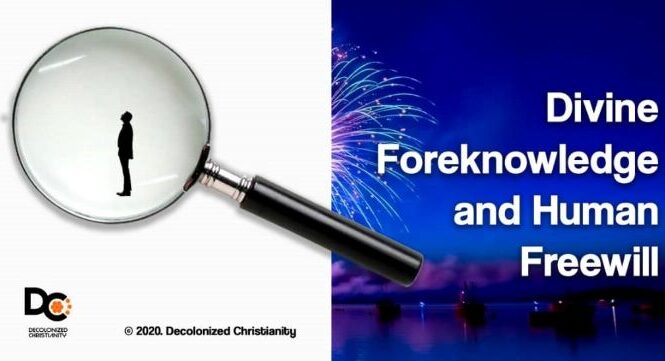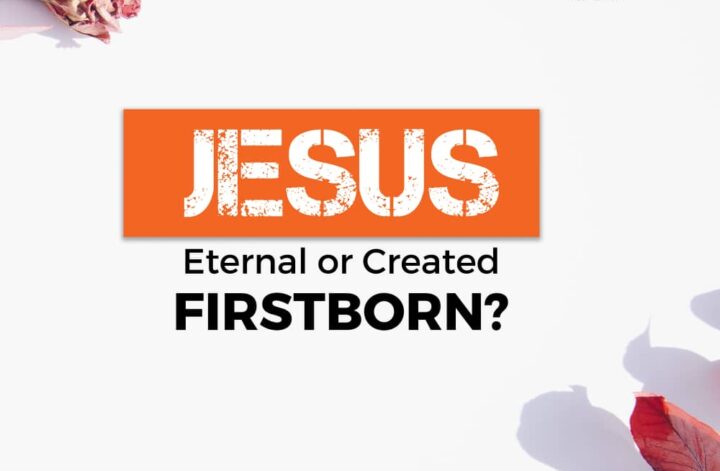Armed with an alternative to a fatalistic reading of Scripture, let us now apply it to some biblical passages that determinists often cite to support their theological doctrine and system. Minimally, my goal is to show that these passages do not commit us to determinism. Most times, determinism contradicts the points of the passages.
1. Did God know that Adam and Eve would fail? Why did he put the tree there then?
This one is surely a well-known candidate for determinism. Children of thinking ages have wrestled with this question. If God did not mean for Adam and Eve to fail, why put them in such a situation? I find it quite fitting that the book that claims to reveal God and his plans to humans contain data of this kind on its opening pages. How we wrestle with this passage will affect our views of God—the ways of the Lord (Psalm 103:7)—and humans. Since we find this story on the opening pages of the Bible when there was not much to build a theological infrastructure around, I ask that we do our best to lay down our theological systems and read the account at face value without (excessive) theological presuppositions.
God instructed this couple that they may freely eat whatever they choose from the garden except the fruit of a specific tree in the garden. He also instructed them on other things such as how to take care of their new home and so on. It is very difficult to see any reason God would instruct this couple on anything if they could not perform it. If Adam and Eve somehow could not eat from any of the trees in the garden, the instruction “You are free to eat from any tree in the garden” is bordering on meaninglessness and divine taunting. We do not have explicit records on the couple’s daily dietary choices, but it is safe to assume that they made those daily choices. This would suggest that they could quite carry out the instructions. Similarly, that God instructed this couple not to eat from a particular tree is itself strongly indicative of the couple’s capability to carry out the instruction. If Adam and Eve were, by nature, incapable of restraining from eating the fruit from the tree of knowledge of good and evil, then the instruction forbidding them from so-doing would be unfair and almost meaningless. It is like telling a flawlessly programmed robot to do contrary to what it is designed to do. Except for amusement, it makes no sense to do so.
The nagging question yet arises, did God know? Of course, God knows, as a matter of definition and logic. But we must take care to not load “knowing” with causation. That God knows a thing does not require him to be the cause. Divine foreknowledge does not rob humans of their free will. God knew that Adam and Eve would fail precisely because they failed! The content of divine foreknowledge logically depends on the actual event happening in time. If Adam and Eve had freely chosen to do otherwise, the content of divine foreknowledge would have been different but accurate.
There is a related question that is also often asked at this point: “why did God put the tree there at all?” I think the easiest answer is to say that God wanted the tree there! Surely, we do not want to deny God the right to do what he wants with his resources. Perhaps, the tree being there is critical to his project of “Let us make man in our image.” Maybe we would not be genuinely human had the tree – and what the tree represents – not be placed in the garden. In any case, the realism of freedom to choose should be questioned in a world where one cannot choose both ways. Logically, being able to choose Q is meaningless where one cannot also choose not-Q. So, if Adam and Eve could choose at all—and I have argued that they could—it is necessary that their world offered the possibility of choosing in either direction. In summary, I do not see determinism at play in this most important of stories about God and humans at all, and I suspect that those who do come to this story with thick theological lenses.
2. Joseph and his brothers
Joseph, having revealed his true identity to his evil brothers who sold him into slavery, made a comment that interests us here:
“You intended to harm me, but God intended it for good to accomplish what is now being done, the saving of many lives”—Genesis 50:20.
This passage supposedly supports determinism in that Joseph said God intended it for good. Unless one is already convinced of the truth of determinism on other grounds, however, I do not see how this passage supports determinism. The error here is in understanding “intended” as meaning “caused.” If true, determinism would require that God caused Joseph’s brothers to sell him into slavery and the other intervening details before the brothers met again. And the reason? So, God could preserve the lives of Jacob’s family in a distant future. Besides being morally problematic, there is no sufficient reason to take “intended” as meaning “caused.” “Intended” may mean that God used the situation for good. In fact, here is how the Contemporary English Version puts it: “You tried to harm me, but God made it turn out for the best.” I am convinced that this reading is correct.
There is another verse connected to Joseph’s life that is often used to support determinism. Genesis 45:8 states, “So then, it was not you who sent me here, but God.” Determinists often take Joseph as saying that God is the one who really sent him to Egypt through slavery, reducing the brothers to mere pawns. Perhaps such a reading is possible if one ignores the larger context, but not without problems. However, I think this verse is consistent with saying that God made things turn out for good. I do not think Joseph was exonerating his brothers, but, the brothers having suffered enough, Joseph wanted to assure them of his good intentions towards them. He wanted them to know that he would not punish them for their evil. A convenient and true way to do that was to hang it all on God — for God is never caught unawares. Joseph’s brothers clearly did not think they were mere pawns in the scenario. They knew they were responsible for the evils they did to Joseph. In fact, right after their father died, they became terrified again thinking Joseph might exact punishment on them, and that was when Joseph reassured them that, “You tried to harm me, but God made it turn out for the best.”
Besides, there is yet another plausible reason for Joseph’s statement that God, not the brothers, sent him to Egypt. In the account recorded in Genesis 37, the writer tells us about “a caravan of Ishmaelites coming from Gilead. Their camels were loaded with spices, balm, and myrrh, and they were on their way to take them down to Egypt” (25). Using the narrator’s privilege, the writer tells us of the destination of the caravan. But it is very doubtful that the brothers knew that the caravan was heading to Egypt for two reasons. First, they would not have cared! In fact, their original thought was to kill Joseph before Judah suggested that they sell him into slavery. Second, even if the brothers had any idea about the intended destination of the caravan, there was no way for them to know that Joseph made it to Egypt since he could have been re-sold en route. If it is the case that the brothers could not have known where Joseph ended up, then it is easy to see why Joseph said God sent him to Egypt. We could understand Joseph as saying that the brothers sent him away by selling him into slavery, but God sent him to Egypt on an assignment. This would not mean that God caused the brothers to conspire to sell their brother at all. Instead, it would mean that despite the evil of the brothers, God stepped in to make it turn out for good.



